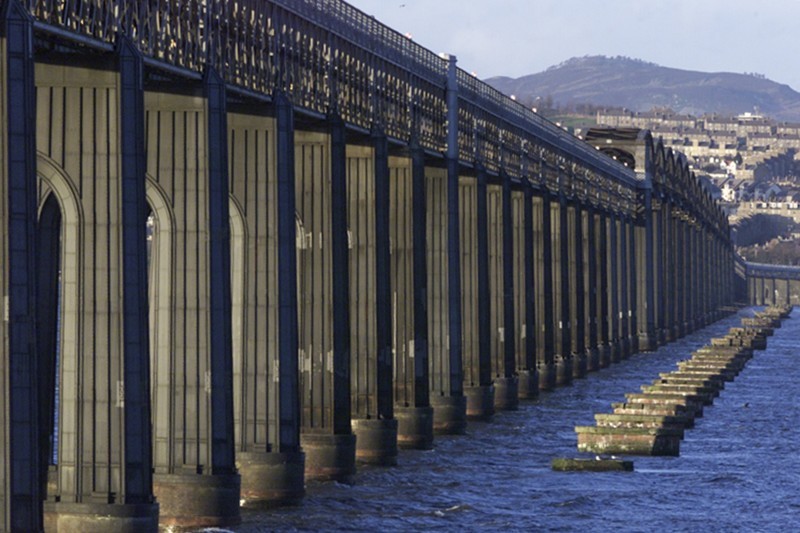Freak weather last seen at the time of the Tay Bridge Disaster could return to the east coast of Scotland this year, it has been predicted.
Respected meteorologist Piers Corbyn believes magnetic forces could bring about some of the most severe weather seen for years.
He bases his predictions on Earth’s relationship to solar activity, and has been studying weather patterns about the time of the disaster in 1879.
He believes the coming months will see weather similar to that 132 years ago.
He said: “It’s all to do with the magnetic relations between the sun and the Earth, the particles from the sun and how the moon modulates them.
“We look at the last time the same things were happening with the sun, moon, Earth, solar activity and magnetic forces and use them to predict what’s happening now.
“We’ve been looking at a group of years between 1875 and 1879, when the Tay Bridge Disaster took place, to help predict the weather this year. Nothing will be identical but they will be similar enough.”
Some 75 people died when their train crashed into the waters of the Tay after the rail bridge collapsed in high winds on December 28, 1879.
And while no-one is arguing a similar tragedy is possible now, should Mr Corbyn’s predictions be proved correct it may give some modern rail passengers reason to give nervous glances out of the carriage window as they make their way over.
Ian Nimmo White, a member of the Tay Rail Bridge Disaster Memorial Trust, says the weather that night was particularly fearsome.
“The really bad weather started up at about 5pm and just gained in severity from there. The last train that crossed was the 5.50pm from Newport and it was very bad then, with passengers and crew said to be in a high state of nerves when they arrived at the station.
“In modern times it’s possible that the train would have been stopped. It was said that the gales that night were the worst in Dundee for 50 years.”
Current Met Office forecasts go no further than 30 days, although they suggest normal conditions as we enter the autumn period.
